
views
Warsaw: Polish prosecutors alleged Monday that a new analysis of evidence from the 2010 plane crash in Russia that killed the Polish president shows that two Russian air traffic controllers and a third Russian official in the control tower deliberately contributed to the disaster.
Russian President Vladimir Putin's spokesman quickly rejected the Polish claims, which seemed likely to deepen already tense ties between Russia and NATO member Poland.
"The circumstances of this tragedy have been thoroughly studied, and we cannot agree with such conclusions," Dmitry Peskov said.
Poland's National Prosecutor Marek Kuczynski said there is "no doubt" that one of the causes of the crash was the behavior of those in the control tower. Deputy prosecutor Marek Pasionek said the two air traffic controllers were guilty of "deliberately causing an air traffic catastrophe," and said the third Russian official present was guilty of "assisting in deliberately causing a catastrophe."
Polish investigators said they want to question the men and cannot reveal details about the evidence until that happens.
The crash on April 10, 2010, killed President Lech Kaczynski and 95 others, many of them top Polish state and military leaders. The disaster occurred when the Polish crew tried to land in heavy fog at a rarely used airport near Smolensk, Russia. The plane clipped a tree on approaching the runway and crashed.
It was the worst tragedy in modern Polish history and at first the nation united in grief.
But the Smolensk tragedy has since become a highly divisive political issue, pitting liberal Poles against conservative supporters of Kaczynski and his twin brother Jaroslaw Kaczynski, a former prime minister who now heads the populist ruling Law and Justice party.
Jaroslaw Kaczynski has suggested that Russian President Vladimir Putin and the Polish prime minister at the time, Donald Tusk, now a top European Union leader, bear guilt for the tragedy.
Kaczynski and his allies have made a range of allegations, at times suggesting that there was an explosive device on board that brought the plane down or that Putin ordered the assassination of the Polish leader, who was deeply critical of Russia.
Other suggestions have included an unproven claim that the Russians produced fake fog to disorient the pilots.
"The Polish authorities continue to use the tragedy to spread political accounts in their country," Russian Foreign Ministry spokeswoman Maria Zakharova said Monday. "We consider this tactic to be unpromising, damaging Russian-Polish relations, which are already not in the best condition."
Some Polish officials have also alleged that Tusk, as prime minister, failed to provide adequate security for the presidential flight, did not have the tragedy properly investigated and neglected to get back the wreckage or flight recorders, which remain in Russia almost seven years later.
Polish Defense Minister Antoni Macierewicz sent a note to military prosecutors last month accusing Tusk of committing the crime of diplomatic treason, alleging he worked with Putin to harm Poland's interests after the crash.
Tusk strongly denies those claims and government critics believe Kaczynski and his nationalistic supporters have encouraged conspiracy theories to win political points with voters skeptical of Russia and pro-European liberals like Tusk.
Some critics said they consider allegations against the Russians as a sign that a commission headed by Macierewicz that is investigating the tragedy has not uncovered anything new.
There were two major investigations into the crash separately carried out by Poland and Russia.
The Polish investigation blamed the disaster on a combination of factors, including bad weather and errors made by a pilot who was not adequately trained on the plane he was flying, a Tupolev-154. That probe also said Russian air traffic controllers gave incorrect and confusing landing instructions to pilots — but it stopped short of alleging intentional wrongdoing.
A Russian investigation at the time put all blame on the Polish side, finding no fault with the Russian air traffic controllers.
Russian President Vladimir Putin's spokesman quickly rejected the Polish claims, which seemed likely to deepen already tense ties between Russia and NATO member Poland.
"The circumstances of this tragedy have been thoroughly studied, and we cannot agree with such conclusions," Dmitry Peskov said.
Poland's National Prosecutor Marek Kuczynski said there is "no doubt" that one of the causes of the crash was the behavior of those in the control tower. Deputy prosecutor Marek Pasionek said the two air traffic controllers were guilty of "deliberately causing an air traffic catastrophe," and said the third Russian official present was guilty of "assisting in deliberately causing a catastrophe."
Polish investigators said they want to question the men and cannot reveal details about the evidence until that happens.
The crash on April 10, 2010, killed President Lech Kaczynski and 95 others, many of them top Polish state and military leaders. The disaster occurred when the Polish crew tried to land in heavy fog at a rarely used airport near Smolensk, Russia. The plane clipped a tree on approaching the runway and crashed.
It was the worst tragedy in modern Polish history and at first the nation united in grief.
But the Smolensk tragedy has since become a highly divisive political issue, pitting liberal Poles against conservative supporters of Kaczynski and his twin brother Jaroslaw Kaczynski, a former prime minister who now heads the populist ruling Law and Justice party.
Jaroslaw Kaczynski has suggested that Russian President Vladimir Putin and the Polish prime minister at the time, Donald Tusk, now a top European Union leader, bear guilt for the tragedy.
Kaczynski and his allies have made a range of allegations, at times suggesting that there was an explosive device on board that brought the plane down or that Putin ordered the assassination of the Polish leader, who was deeply critical of Russia.
Other suggestions have included an unproven claim that the Russians produced fake fog to disorient the pilots.
"The Polish authorities continue to use the tragedy to spread political accounts in their country," Russian Foreign Ministry spokeswoman Maria Zakharova said Monday. "We consider this tactic to be unpromising, damaging Russian-Polish relations, which are already not in the best condition."
Some Polish officials have also alleged that Tusk, as prime minister, failed to provide adequate security for the presidential flight, did not have the tragedy properly investigated and neglected to get back the wreckage or flight recorders, which remain in Russia almost seven years later.
Polish Defense Minister Antoni Macierewicz sent a note to military prosecutors last month accusing Tusk of committing the crime of diplomatic treason, alleging he worked with Putin to harm Poland's interests after the crash.
Tusk strongly denies those claims and government critics believe Kaczynski and his nationalistic supporters have encouraged conspiracy theories to win political points with voters skeptical of Russia and pro-European liberals like Tusk.
Some critics said they consider allegations against the Russians as a sign that a commission headed by Macierewicz that is investigating the tragedy has not uncovered anything new.
There were two major investigations into the crash separately carried out by Poland and Russia.
The Polish investigation blamed the disaster on a combination of factors, including bad weather and errors made by a pilot who was not adequately trained on the plane he was flying, a Tupolev-154. That probe also said Russian air traffic controllers gave incorrect and confusing landing instructions to pilots — but it stopped short of alleging intentional wrongdoing.
A Russian investigation at the time put all blame on the Polish side, finding no fault with the Russian air traffic controllers.










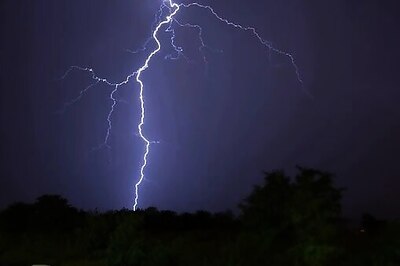
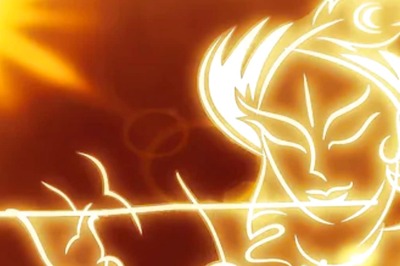


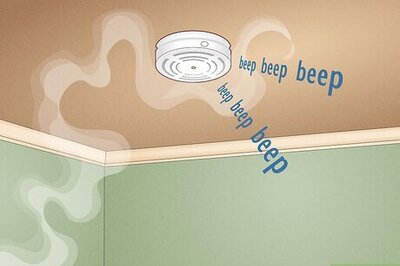

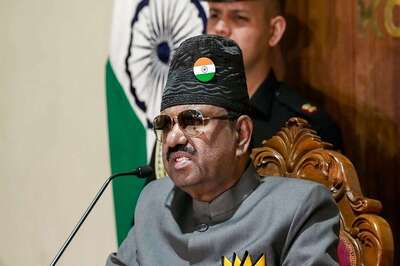
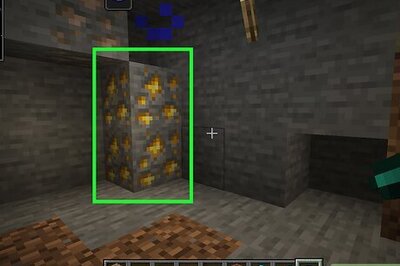
Comments
0 comment